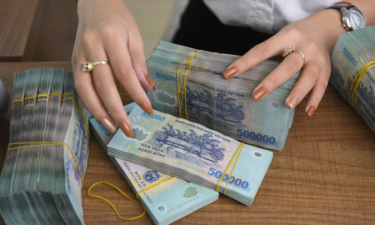
|
In the first quarter of 2021, foreign direct investment (FDI) pledges to Vietnam recorded positive growth for the first time since the flare-up of the Covid-19 pandemic. |
|
This is the result of Vietnam’s success in containing the pandemic and reflects foreign investors’ confidence and high expectations about Vietnam’s economic prospects. High-tech projects On the final day of the first quarter, the Quang Ninh government granted investment licence to a US$500 million photovoltaic cell project by Jinko Solar from Hong Kong (China), one of the largest manufacturers of solar panels in the world with 12% of the global market. The company made two inspection tours in Vietnam and finally decided to choose Song Khoai Industrial Park for its manufacturing facility. The first three months of 2021 also saw other enormous projects, including the Long An LNG I and II power plants by Singaporean investors with a total investment of US$3.1 billion, and the O Mon II thermal power plant by a Japanese investor with a total capital of US$1.31 billion. In the manufacturing sector, an additional US$750 million was invested in the LG Display project in Hai Phong while Bac Giang Province saw US$293 million poured into a project by Fukang Technology to produce tablets and laptops. According to the Ministry of Planning and Investment (MPI), FDI disbursement during the January-March period increased by 6.5%. For foreign investors in Vietnam, the recovery is clearly seen in their contributions to Vietnam’s total exports. Specifically, the foreign sector posted a trade surplus of US$8.8 billion, offsetting the trade deficit of US$6.7 billion by domestic enterprises to help Vietnam register a trade surplus of over US$2 billion. Data by the General Statistics Office show that manufacturing accounts for the largest share of FDI into Vietnam, at 58.5%, and is the main driver of economic growth. In the first quarter of 2021, total FDI pledges to Vietnam rose by 18.5% after two consecutive months of decline. Consideration of special policies According to the MPI’s Department of Foreign Investment, the transition from the 2014 Law on Investment to the 2020 Law on Investment, which took effect on January 1, 2021, has affected foreign investment in Vietnam. In addition, the return of Covid-19 in many countries and in Vietnam also affected investors’ travel along with their decisions on new investments. Therefore, the number of new projects, capital adjustments and share purchases continues to fall compared with the same period but the decrease has improved. A positive point is the wave of high-tech companies with a series of projects by Samsung, Foxconn, Luxshare and Intel having been put into operation, in addition to moves by many major technology companies to learn about the investment opportunities in Vietnam. Besides establishing a working group to welcome large companies, the Prime Minister recently issued a decision on the criteria of a high-tech company, replacing those already in place since 2015. The most significant change is that a company is to be classified as high-tech if its revenue from high-tech products accounts for at least 70% of its annual revenue. The decision also stipulates the portion of spending on research and investment depending on the company size, which provides much more favourable conditions for enterprises. In order to realise the Politburo’s resolution on fine-tuning institutions and policies to enhance the quality of foreign investment until 2030, the MPI is soliciting opinions from the relevant ministries and agencies on special incentive policies, which are expected to cover innovation centres, research and development projects, projects larger than VND30 trillion (US$1.3 billion) and those with disbursement of VND10 trillion (over US$400 million) in three years. Source: Nhan Dan Online |
